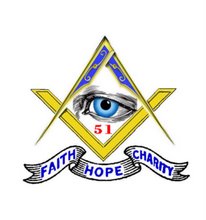
Tony's tirade could change NASCAR
Insinuations that outcomes are predetermined could dog circuit
By Bob Cook
It’s a shame Tony Stewart besmirched a sport’s good name when he compared NASCAR to professional wrestling. Pro wrestling doesn’t deserve such a cheap shot.
The temperamental two-time NASCAR champion didn’t use the word "fix" specifically in his rant during his Tuesday night show on the Sirius Satellite Network. But Stewart’s statement that NASCAR "can almost dictate the race instead of the drivers doing it" dredges up a lot of memories of too-good-to-be-true finishes.
Think about way-past-his-prime Richard Petty winning his 200th NASCAR race at Daytona in 1984 in front of President Reagan on Independence Day weekend. Indiana native Jeff Gordon winning the inaugural race at the Indianapolis Motor Speedway in 1994. Dale Earnhardt Sr. winning his first Daytona 500 late in his career in 1998, on the opening day of NASCAR’s 50th anniversary season. Dale Earnhardt Jr. winning the Pepsi 400 in 2001, the first race after his father died that same Daytona track. For that matter, Juan Pablo Montoya, the only Latin American driver in the race, winning this year’s Busch Series event in Mexico City.
hese aren’t suspicious finishes brought up by some hack sports columnist. These are finishes commonly cited by beat writers and fans when talk turns to NASCAR’s extraordinarily good fortune in getting the result it needs, when it needs it.
And cited by those inside racing as well. A 1994 AutoWeek story quoted, anonymously, drivers and crew chiefs claiming NASCAR allowed Gordon to run a lighter car at that year’s Brickyard 400. The same story also reported sources saying Petty was allowed a larger carburetor restrictor at his 200th victory. Meanwhile, in 1994 the Greensboro (N.C.) News & Record said 14 out of 30 "top members of the NASCAR family" said they believed the circuit singled out certain drivers for special treatment, though only two said their teams were the beneficiaries.
n 1998, racing writers Mike Mulhern and Robin Miller quoted more anonymous sources talking about a phenomenon known as "making the call" — when NASCAR officials let everybody know who is going to win today’s race.
In 2001, Earnhardt Jr.’s charge to the top of field was so suspicious — yes, he’s good at restrictor-plate tracks, but nobody could pass that day — that many writers and fans openly accused NASCAR of "making the call" so he could win.
Stewart’s charges against NASCAR relate to something more mundane: the circuit’s oddball use of the caution flag. Depending on the race — and, say, whether the field is too spread out or a few drivers appearing to be dominating — yellow flags for "debris" can come flying out when there is nary even a hot dog wrapper visible to the naked eye. Stewart lost one race in Atlanta when he led with 25 laps to go and the field pitted.
On the other hand, use of the caution flag can be not-so-cautious. During Montoya’s Busch victory in Mexico City, the flag sat still during early-race spins that one would think would force a caution. Yet later in the race, when Montoya was closer to the top, the debris cautions came out, allowing him to close some space.
Stewart said on his radio show that fans are complaining about the strange cautions — and he’s right. With Stewart, 35, nearer to the end of an accomplished career, and his general status as an ornery cuss, he has less to lose than most anybody by spouting off about what he sees as troubles in NASCAR.
"I guess NASCAR thinks, ‘Hey, wrestling worked, and it was for the most part staged, so I guess it’s going to work in racing, too,’" Stewart said. "I don’t know that they’ve run a fair race all year."
NASCAR called Stewart's comments "very disappointing," and in the past it has denied any accusations of messing with races. But what do you expect it to say?
NASCAR is in the untenable position of proving a negative, and a pretty pernicious one at that. While there is frequent circumstantial evidence that not all is as it seems, no one has found a documented smoking gun — if there even is one —that would unequivocally tie NASCAR to manipulating results. Just like how no one has unequivocally tied NBA commissioner David Stern to an alleged "bent envelope" scheme of 1985 that allowed New York to win the draft lottery, thus ensuring Patrick Ewing would play in the NBA’s largest market.
But as Stern could tell you too many coincidences working in your favor can hit your league’s image. Would this have an effect on NASCAR’s declining TV earnings and attendance at some tracks?
As Stern also could tell NASCAR, it’s difficult to wriggle out of this position. Perhaps one thing NASCAR could do is be more transparent to fans in its operations, starting with opening its rule book to the public. Assuming the rule book is more than whatever NASCAR feels like that week.
Maybe with that first step, with that honesty, NASCAR can put itself in a position where a Tony Stewart can truly, positively compare it to professional wrestling.
Bob Cook is a contributor to MSNBC.com and a freelance writer based in Chicago.

No comments:
Post a Comment